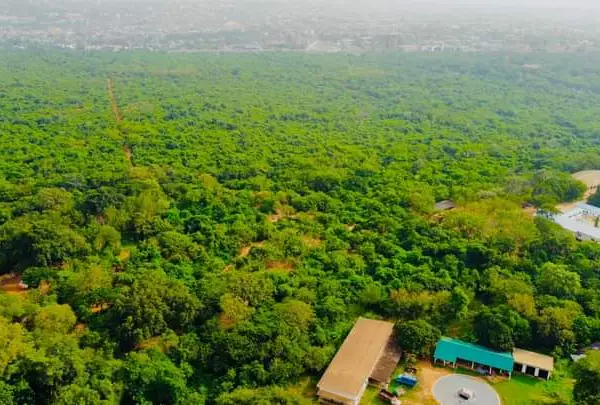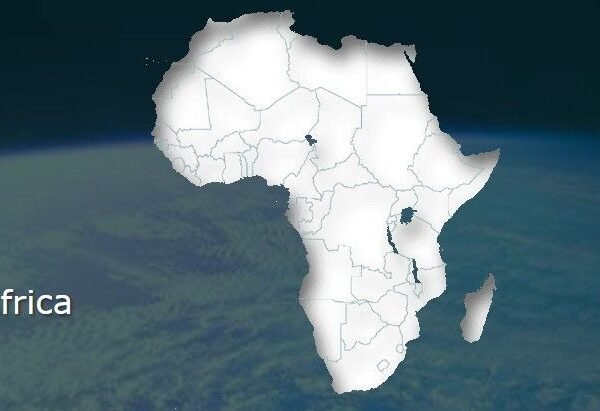Introduction
Freedom of expression of opinions, ideas, thoughts and debates in oral format, print or gesture originate as one of the cardinal inalienable rights conferred on humanity in the Universal Declaration of Human Rights (UDHR). This right seeks to induce creativity and novel strategies within peoples of the international community so as to advance the worth, dignity and prosperity of the human race without restriction or intimidation. Also, freedom of expression aims at creating an atmosphere of genuine solidarity and brotherhood among men and women from all latitudes in order to exchange and cross-fertilise views points capable of establishing political systems that enhance the collective good of citizens within a nation and beyond. Against that backdrop, this blog traces the right to freedom of expression from some international and regional perspectives as well as examine the significance of the right in the dispensation of democracy as pertained in the Ghanaian experiment. Lastly, the proliferation of media houses as a scaffolder to misinform the public is engaged.
Freedom of Expression of Opinion in International and Regional Instruments
Article 19 of the Universal Declaration of Human Rights (UDHR) states, thus: “Everyone has the right to freedom of opinion and expression; this right includes freedom to hold opinions without interference and to seek, receive and impart information and ideas through any media and regardless of frontiers.” Without sounding pedantic and scholarly on the UDHR, it is common knowledge among politicians of the north-south divide, including diplomats of the same class, that the UDHR has a recognised status as one of the sources of international law. As such, Ghana being a member state of the United Nations (UN) has an obligation to respect, promote and implement this right for the benefit of its people and to encourage them participate actively in consolidating the country’s political and democratic experiment. Similarly, Article 19 of the International Covenant on Civil and Political Rights (ICCPR) affirms the right to freedom of expression without discrimination on frontiers. Equally, paragraph 7 of General Comment No. 34 of the ICCPR , opines that: “The obligation to respect freedoms of opinion and expression is binding on every State party as a whole. All branches of the State (executive, legislative and judicial) and other public or governmental authorities, at whatever level – national, regional or local – are in a position to engage the responsibility of the State party. Such responsibility may also be incurred by a state party under some circumstances in respect of acts of semi-State entities.” As clearly elucidated in the above, a state like Ghana together with the judiciary and parliament bear a duty to protect the right to freedom of expression by ensuring that Ghanaians including public and private media houses, social media operatives and bloggers, speak freely on national issues without fear of intimidation and censorship. Although it is worth pointing out that exceptions exist to safeguard against the promotion of views and opinions fabricated to usurp state power or foment national uprising.
Regionally, the EU Charter of Fundamental Rights in its article 11 (1) and (2) stipulates thus: “Everyone has the right to freedom of expression. This right shall include freedom to hold opinions and to receive and impart information and ideas without interference by public authority and regardless of frontiers. The freedom and pluralism of the media shall be respected.” The Organisation of American States (OAS) sanctions and affirms article 13 of its convention in obliging states parties to protect and respect the right to freedom of expression and opinion of journalist and media practitioners without intimidation and coercion. Moreover, Article 9 (1) (2) of the African Charter on Human and Peoples’ Rights supports the right to express one’s opinion, ideas, belief and public engagement without restrictions. At the domestic front, article 21 (i-g) of the 1992 Constitution of Ghana firmly underscores the legitimacy of freedom of expression as well as debating of ideas freely without fear of favour or coercion. Profoundly, one fact which stands eminently clear in the traces of international and regional provisions of freedom of expression/opinion, is that, it plays a pivotal role in securing not only the democratic and political structure of states (Ghana included) but also emboldens the citizens to become active participants in state governance.
Significance of Freedom of Opinion and Expression in Ghana’s Politics
To entrench and consolidate democratic governance among the international community of which Ghana is a constituent, pluralism of ideas and tolerant society are critical. For this to happen successfully, Ghanaians should be able to speak freely and openly about how they would like to be governed and criticize those who are in power. This underlines the essence of liberalising free public and private media houses so as to gender public debate on national issues affecting socio-economic development of the country. Also, Freedom of expression promotes accountability among those in power and the citizenry. As regards those in power, it emboldens the citizenry to share their views on government policies on social, economic and politics by criticising them so as to provide a favourable outcome. Thus, the proliferation of media spaces in Ghana offers an opportunity for the diverse sections of the people irrespective of status, and as a means to engage in such public discourse. Furthermore, freedom of opinion strengthens democratic society by ensuring that people are treated equally and fairly. Conversely, minority groups who are underrepresented in government are often side-lined, and their opinions are neglected in favour of those belonging to the dominant social group. Therefore, by campaigning and speaking openly about the issues faced by their communities, marginalised people can gain widespread public support for their cause. This increases their ability to influence public agenda-setting and put an end to human rights abuses. Lastly, Amnesty International has observed that “Governments have a duty to prohibit hateful, inciteful speech but many abuse their authority to silence peaceful dissent by passing laws criminalizing freedom of expression. This is often done in the name of counterterrorism, national security or religion. More recently, freedom of expression has come under threat by authorities clamping down on activists, NGOs and individuals helping refugees and migrants.” The criminalisation of freedom of speech which once existed on the statute book of Ghana under the sedition and libel act had been abolished as a strategy to sanitise and liberalise the media landscape in consonance with the democratic aspirations and credentials of the country. However, some vestiges of that draconian law manifest itself in the maltreatment of media personnel, closures of media houses, arrest and jailing of media personnel by current and previous Ghanaian governments as well as intimidation and bribery of media personnel to defend or tow government line. The prevalence of such hostile policies coupled with threatening atmosphere in which some media professionals, social media operatives and bloggers discharge their functions warrant proliferation of media spaces in Ghana. Because such avenues serve as outlets for disgruntled members and persecuted media professionals to speak out of their abuses to the public and the international community. Sadly, in the case of Ghana, the proliferation of such media houses has become a scaffolder in peddling falsehood, misinformation and protection of governments against accountability.
Media Houses as a Scaffolder to misinform the Masses
Stemming from the preceding discussion, there is little doubt that having quality, impartial, neutral, bold, critical and intelligent media practitioners operating within the proliferated media spaces bode well for Ghana’s political and social experiments, which is anchored in a democracy. Conversely, the proliferation of media houses in Ghana is metamorphosing into disorganised, fake news and insipid news outlets, steeped in churning distasteful information or acting as ill-informed public relations officers for the government or opposition parties, by sacrificing their core mandate to inform, educate and entertain the masses. The following examples will suffice. Frist, most media houses in Ghana are actively churning falsehood calculated to shield the government. ministers of government and agents of public institutions from accounting on their stewardship to the public. Second, primarily, the media’s role is to educate, inform, scrutinise, challenge and ask difficult questions to presidents, parliamentarians, ministers of government and servants of public institutions with w view of holding them accountable. Conversely, today not only is the media landscape littered with uniformed, ill-trained, tribal bigots, sycophants, fake news fabricators parading air-waves as journalist, but also majority of these incompetent presenters lack basic journalistic skills of media professionalism thereby “polluting” the masses with falsehood and fabricated information. Third, following from the propagation of falsehood aimed at the uneducated majority of the Ghanaian population, there is pervasive antagonism characterising politics in the country, with people unwilling to engage in day-to-day interactions with their political adversaries, many build their impressions of opponents via the media. This is troubling because social) media is increasingly shaping how the people perceive the political environment. As media has become more fragmentated, people have become more polarized ideologically without endeavoring to dialogue for a common solution to national development.
Conclusion
The problem of partisan bias is exacerbated on social media because online networks are often organised around a few key influencers. This feature of social media is one of the main reasons why misinformation and fake news has become so pervasive. In Ghana, biased influencers have a disproportionate impact on their community because of the proliferation of media outlets; thus, enabling small rumours and distortions to become amplified into widespread misconceptions and false beliefs. The danger of all this is that proliferation of media houses does not represent pluralism of opinions/ideas and the earlier such danger is resolved the better it will be for Ghana’s democracy.




